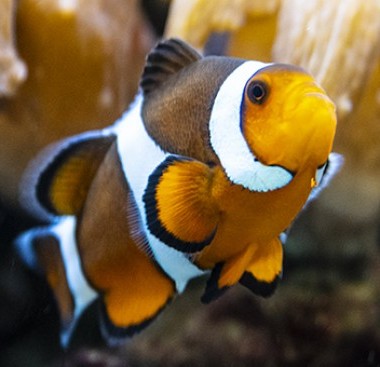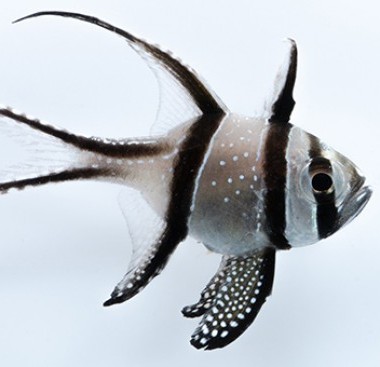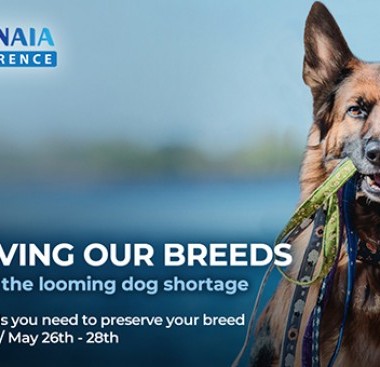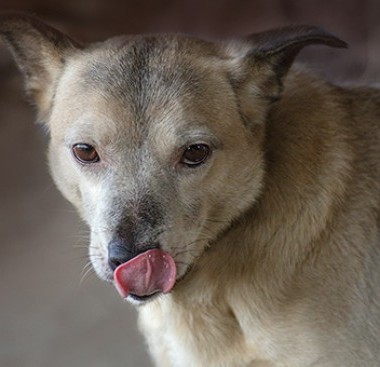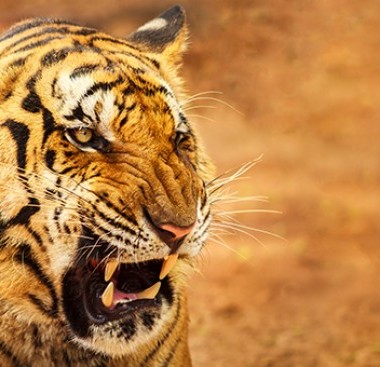USDA AMENDS REGS TO CLOSE LOOPHOLES
No more multiple-owner schemes to avoid licensing.
By: Staff Date: 09/1/2004 Category: | Animal Legislation | Canine Issues |
The US Department of Agriculture closed several loopholes in animal welfare regulations by applying the "three breeding females regulation" to entire households in amendments that took effect on August 13, 2004.
USDA regulates commercial traffic in pet breeding, the sale and use of animals in research, the use of animals in exhibits, and the transport of animals for these purposes. Retail sales are specifically exempt from the regulations, and the breeding of dogs and cats for show and for direct sale to consumers are included in the retail definition.
The new rule adds small exotic or wild animals to the 'breeding females' limit and considers the premises on which the animals are located, not individual ownership. In the past, those who owned fewer than four breeding females could sell puppies or kittens for resale in pet stores without a license. USDA considered this a de minimus or minor use requiring no oversight. However, this provision allowed commercial operators to avoid licensing by claiming different owners for the dogs in their kennels.
"Some individuals have contended that they are not required to have a license even when they keep more than three breeding female dogs and/or cats on the same premises as long as no single member of the household owns more than three," USDA reported in the Federal Register. "However, when several members of the same household (or other persons acting in concert) are maintaining breeding female dogs or cats on the same premises such that the number of breeding females in total is more than three, we believe that the activities are no longer de minimus and the dealers need to be licensed."
The exemption for show dog breeders remains intact, even if the breeder owns or co-owns more than three breeding females and sells dogs that may eventually be resold. As before, the regulations cover only commercial dealers who sell pets to retail outlets, to research institutions, and for teaching or exhibition.
The new rules echo suggestions in the American Kennel Club High Volume Breeder Report issued by the AKC board in November 2002 and enhanced by a board vote to work closely with USDA to see these loopholes closed.
AKC's board recommended that USDA include "An amendment to the 'small breeder' exemption to make the exemption applicable to those premises on which three or fewer breeding female animals of regulated species are kept, rather than the current language which exempts all persons who maintain three or fewer breeding females, even when more than one such person occupies the same premises. Under current interpretation, seven or eight breeders residing at the same address could avoid USDA regulation by each claiming to own three or fewer bitches".
Increased Reinforcement
Previously, dealers could be denied a license or renewal of a license if they pled 'no contest' or were convicted of violations of state or local cruelty laws within one year of the license application. The new provision adds federal law and federal, state, and local animal use regulations so that USDA can deny a license to anyone convicted of or pleading 'no contest' to charges of violations of federal, state, or local animal cruelty laws or regulations governing animal care or transport within one year of the license application.
In addition, USDA now has the option of going back further than a year if past violations have been grievous and of denying a license to anyone who would be operating in violation of local laws and regulations if the federal license were granted. This provision will prevent dealers from getting a federal license that allows them to operate an animal business that is prohibited by state or local ordinances.
The USDA administrator can also deny a license if he determines that issuance will be "contrary to the purposes" of the Animal Welfare Act.
The new regulations also allow USDA to terminate a license for the same reasons it can now deny a license.
Exotic Animals
Exotic animal sellers and exhibitors now must "demonstrate adequate experience" in order to get a license. This provision applies to zoos and other organizations and individuals who sell or exhibit wild and exotic animals. The regulations do not define "adequate experience," but USDA acknowledges that experience with and knowledge of comparable species is acceptable.
This regulation is subject to further refinement as USDA continues to scrutinize exotic animal ownership.
Animal Acqusition
USDA licenses three classes of animal dealers: Class A dealers sell animals bred and raised on their own premises. Class B dealers sell animals gathered from random sources such as shelters, owners who surrender their own animals, auctions, and individuals known as bunchers who put together lots of animals acquired from these sources. Class C licensees are zoos and other organizations that exhibit animals.
Some animal rights groups accuse bunchers of operating wide-spread stolen pet rings and allege that research institutions aid and abet pet thefts by purchasing animals from Class B dealers. These groups use their allegations as part of a massive campaign against animal-based scientific research and as a fund-raising tool. However, USDA notes in the Federal Register that the country has fewer than 30 Class B dealers that buy and sell random source animals.
The new rules oblige dealers and exhibitors to buy only from licensed dealers or to get certification that the animals were born and raised on the premises of the seller. Only animals acquired from pounds and shelters are exempt. This rule will cut into the practice of amassing groups of animals from indiscriminate sources and selling them to dealers without documentation of their origin.
For more information about the new rules and a summary of comments received from interested parties, download the federal register pages at http://www.aphis.usda.gov/ac/kitchensink.pdf
Notes
1. ‘Breeding female’ is defined as an animal kept to produce offspring for sale into the wholesale pet trade, for research, or as teaching or exhibit animals.
2. Federal Register, Vol. 69, No. 134; July 14, 2004, p. 42091.
3. The AKC High Volume Breeder Committee also recommended that USDA extend its air transport rules to cover foreign carriers bringing animals into the US and US carriers that transported animals brought to this country by foreign airlines. USDA did so on April 1, 2004. “The new policy will be a major step forward in regulating importation of puppies,” AKC government liaison Jim Holt wrote in the August 2004 edition of Taking Command, the AKC legislative newsletter. “The AKC strongly urged the APHIS to extend enforcement of its regulations to foreign air carriers, noting that some foreign carriers were landing shipments of puppies in the U.S. which could not have been legally carried by U.S. carriers, and that except for those carriers that voluntarily adhered to the International Air Transport Association’s regulations, such shipments were essentially unregulated.” For more information, see the USDA website. For a copy of Holt’s comments, see http://www.akc.org/enewsletter/taking_command/2004/august/usda.htm.
4. AKC knows whereof it speaks. Some unscrupulous breeders who have had their AKC registration privileges revoked simply used the names of friends and relatives so they could continue to register dogs. AKC changed its policy several years ago to prevent such subterfuge.
About The Author
All Authors Of This Article: | Patti Strand |







